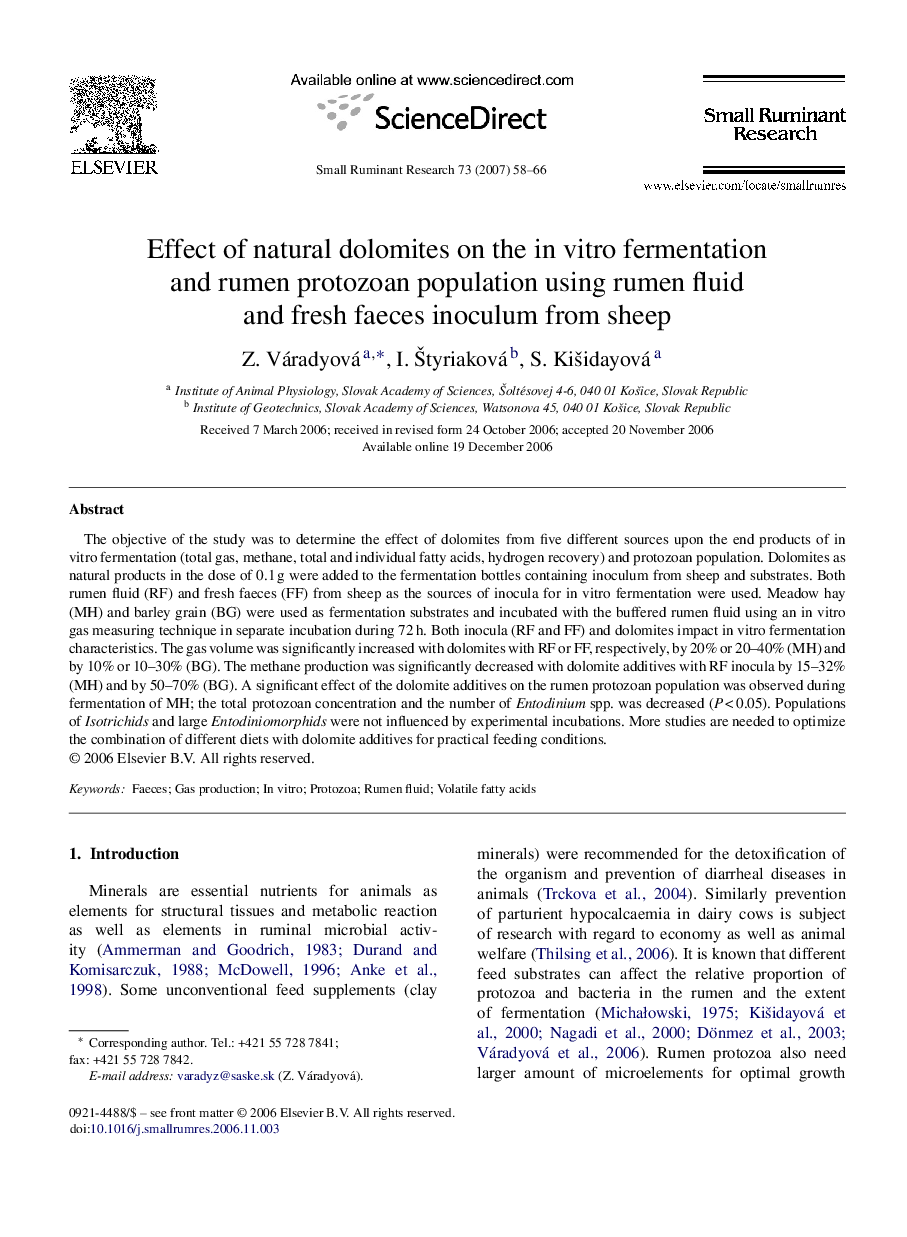| Article ID | Journal | Published Year | Pages | File Type |
|---|---|---|---|---|
| 2458060 | Small Ruminant Research | 2007 | 9 Pages |
The objective of the study was to determine the effect of dolomites from five different sources upon the end products of in vitro fermentation (total gas, methane, total and individual fatty acids, hydrogen recovery) and protozoan population. Dolomites as natural products in the dose of 0.1 g were added to the fermentation bottles containing inoculum from sheep and substrates. Both rumen fluid (RF) and fresh faeces (FF) from sheep as the sources of inocula for in vitro fermentation were used. Meadow hay (MH) and barley grain (BG) were used as fermentation substrates and incubated with the buffered rumen fluid using an in vitro gas measuring technique in separate incubation during 72 h. Both inocula (RF and FF) and dolomites impact in vitro fermentation characteristics. The gas volume was significantly increased with dolomites with RF or FF, respectively, by 20% or 20–40% (MH) and by 10% or 10–30% (BG). The methane production was significantly decreased with dolomite additives with RF inocula by 15–32% (MH) and by 50–70% (BG). A significant effect of the dolomite additives on the rumen protozoan population was observed during fermentation of MH; the total protozoan concentration and the number of Entodinium spp. was decreased (P < 0.05). Populations of Isotrichids and large Entodiniomorphids were not influenced by experimental incubations. More studies are needed to optimize the combination of different diets with dolomite additives for practical feeding conditions.
